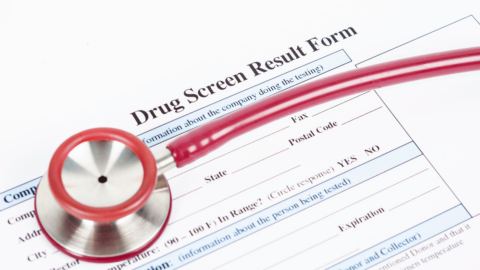If you’re taking Suboxone as part of your treatment for opioid use disorder (OUD), you may be wondering whether it will show up on a drug test. Whether it’s for employment, medical screenings, or legal reasons, knowing how Suboxone interacts with different types of drug tests can help you navigate these situations confidently.
Let’s break it down simply so you know what to expect.
What Is Suboxone?
Suboxone is a medication composed of buprenorphine, a partial opioid agonist, and naloxone, an opioid antagonist. While buprenorphine helps manage withdrawal symptoms and reduces cravings by gently activating opioid receptors, naloxone deters misuse by triggering withdrawal if injected improperly.
Does Suboxone Appear on Drug Tests?
Standard Drug Panels
Typically, Suboxone will not show up on routine drug tests used by employers or standard screening protocols.
Common drug tests, like 5-panel or 10-panel screenings, are designed to detect substances like heroin, morphine, cocaine, THC, and amphetamines—not buprenorphine. This is because buprenorphine is chemically distinct from standard opiates and requires specialized testing for detection.
- 5-panel drug tests look for the most commonly misused drugs: marijuana, cocaine, amphetamines, opiates (e.g., heroin), and PCP.
- 10-panel drug tests may expand to include drugs like barbiturates and benzodiazepines but generally don’t test for buprenorphine
Specialized Testing
If a drug test specifically screens for buprenorphine (often labeled as “BUP” on results), Suboxone will be detected.
These specific tests are generally reserved for:
- Clinical monitoring in substance use programs.
- Legal and probationary settings.
- Treatment compliance to ensure medication adherence
How Long Can Suboxone Be Detected?
The detection window varies based on several factors, including metabolism and duration of use:
- Urine tests: Detectable for up to 7-14 days.
- Saliva tests: Detectable for a few days to a week.
- Blood tests: Typically up to 48 hours.
- Hair tests: Up to 90 days, though rarely used for buprenorphine
Will Suboxone Trigger a Positive for Opioids?
No, Suboxone will not cause a positive result for traditional opioids on standard drug tests. Routine screenings target opiates like heroin and codeine, not partial opioid agonists like buprenorphine.
What Should You Do If You’re Concerned About Drug Testing?
Disclosure and Documentation
If you’re taking Suboxone as prescribed, it’s wise to inform the testing administrator beforehand. Providing proof of your prescription can prevent misunderstandings, as federal regulations protect patients from discrimination when using prescribed treatments like Suboxone for OUD.
Suboxone’s role in treatment is well-recognized, making it crucial to communicate openly if you’re undergoing any specific testing that might include buprenorphine detection. This open communication empowers you to advocate for your treatment and ensures that you are treated fairly in any testing situation.
Understanding how Suboxone interacts with drug tests ensures you’re prepared, confident, and clear about your treatment’s impact on any testing process.
Conclusion: Suboxone and Drug Tests—What You Should Know
In most situations, Suboxone won’t show up on a test. It takes specialized testing to detect buprenorphine, which is generally reserved for clinical, legal, or specific monitoring purposes. At QuickMD, we’re here to make your treatment journey easier with professional online consultations and Suboxone prescriptions.
Are you curious about how treatment can work for you? Explore our treatment options and get personalized support for your recovery.




